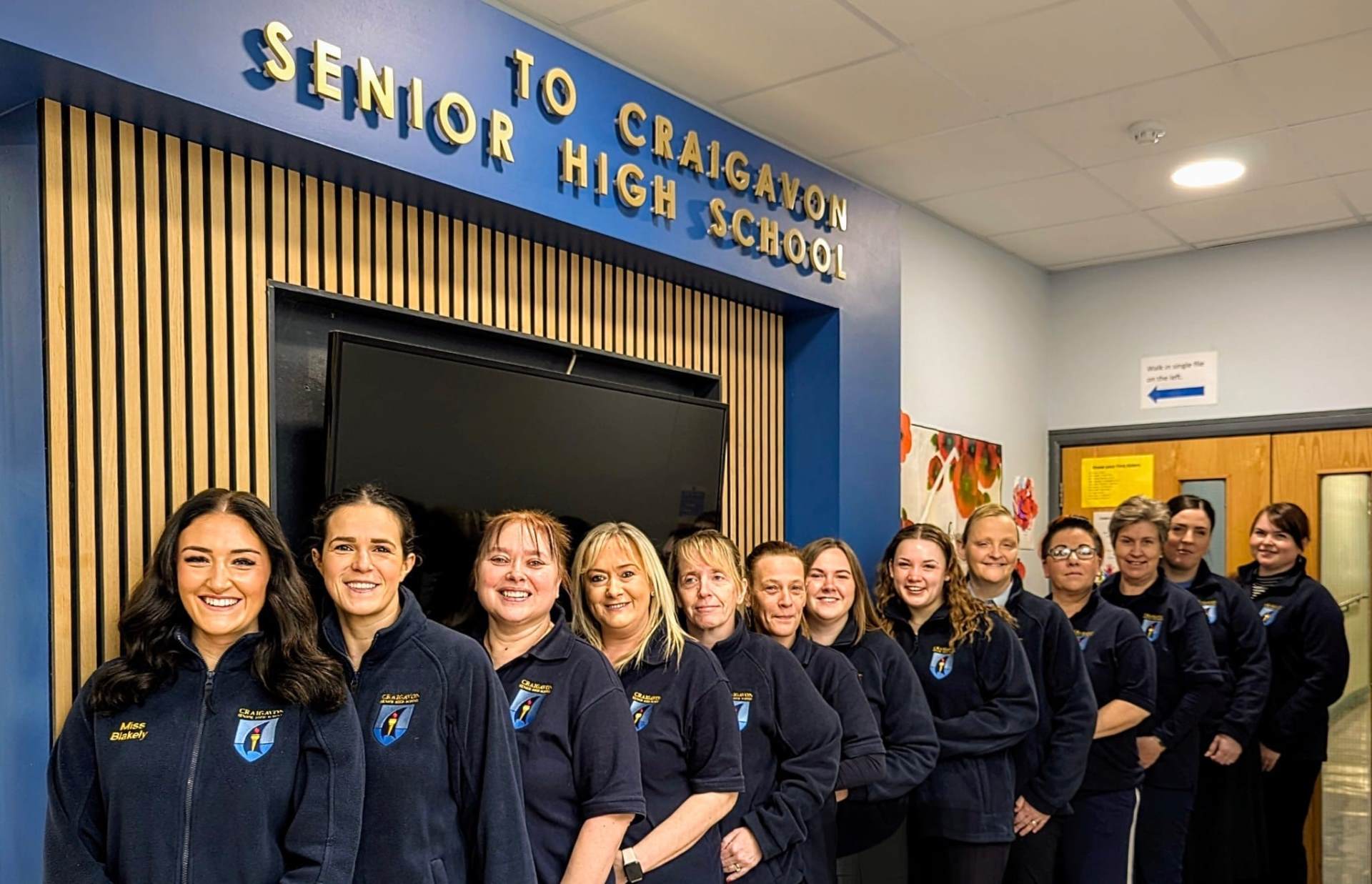Learning Support
We believe in
'Valuing all our young people to shape them positively for their future'.
We endeavour to make sure that every opportunity is given to all our pupils who present with SEN, enabling them to reach their full potential while working towards independence. High and realistic expectations are necessary for our pupils to achieve.
Our Aims
1. To ensure full entitlement and access for SEN pupils to high quality education within a broad, balanced and relevant curriculum so that they can reach their full potential and enhance their self‐esteem.
2. To identify and assess pupils with SEN as early and thoroughly as is possible and necessary and to fully involve pupils, parents and staff in the identification, assessment and delivery of SEN.
3. To strive for close co‐operation between all agencies concerned and for a multi‐disciplinary approach to the resolution of pertinent issues.
4. To meet the needs of all pupils who have SEN by offering continual and appropriate forms of Educational provision by the most efficient use of all available resources.
SEN Support:
The SENCO and DSENCO are responsible for the co-ordination of SEN provision. Some of the responsibilities of the SENCO/DSENCO include: liaising with outside agencies, sharing strategies and suitable resources with teaching staff, organise and providing training for teachers, collating and gathering information about pupils’ progress, contributing to and monitoring individual education plans, as well as responding to requests for advice from teaching staff.
Pupils who present with SEN – Additional Support:
1: In class support system put in place by individual classroom teachers.
2. Literacy/Numeracy and Behavioural individual education plans.
3. Access Arrangements (where applicable).
4. Outside agency support (where applicable/available)- (Educational Psychology, CAMHS, EA Advisors).
5. Differentiation within the classroom, teaching strategies to complement pupils’ individual learning styles.
6. Literacy Support in small group setting.
7. Coping strategies.
8. Assistive technology (ICT support).
9. Pause cards/ De-escalation strategies/ tools.
10. Counselling.
11. Sensory Room.
12. PODD - Personalised Opportunity & Development Department.

 26-34 Lurgan Rd, Portadown
26-34 Lurgan Rd, Portadown Portadown: 028 3835 2222
Portadown: 028 3835 2222 